As drones are becoming an increasingly important element of modern warfare, militaries across the world are experimenting with new ways to integrate unmanned systems into their arsenals.
One way of projecting unmanned airpower is to deploy drones at sea on dedicated carrier vessels.
The appeal of this, especially to middle powers with less economic heft, is that drone carriers could offer many of the same advantages that conventional aircraft carriers do at a far lower cost.
This article is the opinion of the authors and not necessarily that of the UK Defence Journal. If you would like to submit your own article on this topic or any other, please see our submission guidelines.
The drawback is that unmanned aircraft generally do not possess the same capabilities as manned aircraft to operate in highly contested environments or establish air superiority.
Development and Acquisition
A number of states are currently developing their own drone carriers. Following Turkey’s ejection from the F-35 program, Ankara set out to repurpose the TCG Anodolu to carry drones instead of manned aircraft.
In place of the F-35B, the Anodulu will carry Baykar Bayraktar TB3 drones which will be capable of conducting intelligence, reconnaissance, and surveillance missions as well as assault operations with smart munitions.
The Anodolu was commissioned in April 2023, although development of the TB3 is still in progress. The TB3 is essentially the maritime equivalent of the TB2, which has seen combat in Nagorno-Karabakh, Ukraine, Iraq, Libya, and Syria.
Iran is likewise seeking to augment its fleet with drone carriers by converting two merchant container ships. The first of the two vessels, the Shahid Mahdavi was reportedly received by the Islamic Revolutionary Guard Corps Navy (IRGCN) earlier this year, with the second vessel, the Shahid Badheri, still in development.
The vessels will likely carry Iranian-designed Shahed-136 explosive-tipped kamikaze drones, which like the Turkish TB2 drones, have seen usage in Ukraine, Syria, and Iraq.
Although militaries who already have conventional aircraft carriers possess capabilities far in excess of what cheaper drone carriers can currently offer, unmanned systems are set to play a greater role in carrier strike groups.
For example, in 2021, Rear Admiral Gregory Harris (Ret.) said that the US Navy was looking to transition to a 40-60 unmanned-manned split, eventually aiming to achieve a 60-40 unmanned-manned split. Manned aircraft would still be the most important assets onboard a vessel, but drones would increasingly act as force multipliers and complete non-offensive tasks such as surveillance and aerial refuelling.
Similarly, the Royal Navy has been experimenting with the implementation of drones on one of its carriers, HMS Prince of Wales.
Advantages and Limitations
The main advantage of deploying drones on seaborne vessels is the same as conventional aircraft carriers – power projection over longer distances. The acquisition of drone carriers will enable states to conduct unmanned aerial operations at greater distances outside of their own territory, increasing the array of available tactical, operational, and strategic options.
There are several tactical and operational benefits to be gained through the operation of drone carriers or the introduction of drones to conventional aircraft carriers. One key advantage of unmanned systems is that the lives of pilots are not risked during operations. Unmanned aircraft are also far cheaper to produce and run than their manned equivalents.
This means that drones are more expendable than manned aircraft, making them suitable for tasks that might otherwise be deemed too dangerous. This gives commanders at sea greater flexibility to conduct a wider variety of missions without risking the lives of personnel or costly military hardware.
Depending on their configuration, drones launched from carriers will be capable of conducting intelligence, surveillance, and reconnaissance missions, as well as light attack operations against small surface vessels at sea or various targets on land.
At the strategic level, middle-income states stand to benefit the most from the acquisition of drone carriers. For states unable to afford traditional aircraft carriers, drone carriers offer a cheaper and viable alternative that will allow them to project airpower at greater distances without the necessity of land basing. Actors like Turkey or Iran could conceivably extend the use of unmanned aerial capabilities over low-intensity conflict zones with littoral access. This could provide new options to assist allies militarily and undermine opponents with little or no viable air defences.
However, until unmanned aircraft are capable of establishing air superiority, drone carriers will not constitute a revolutionary moment in military affairs. As the conflict in Ukraine has demonstrated, the operational freedom of drones is severely curtailed in environments where adversaries possess capable air defence systems and electronic warfare capabilities.
Drones simply do not yet have the offensive and defensive capabilities of advanced manned aircraft like the F-35. For this reason, aircraft carriers will continue to reign supreme in terms of long-range power projection in at least the short to medium-term future.


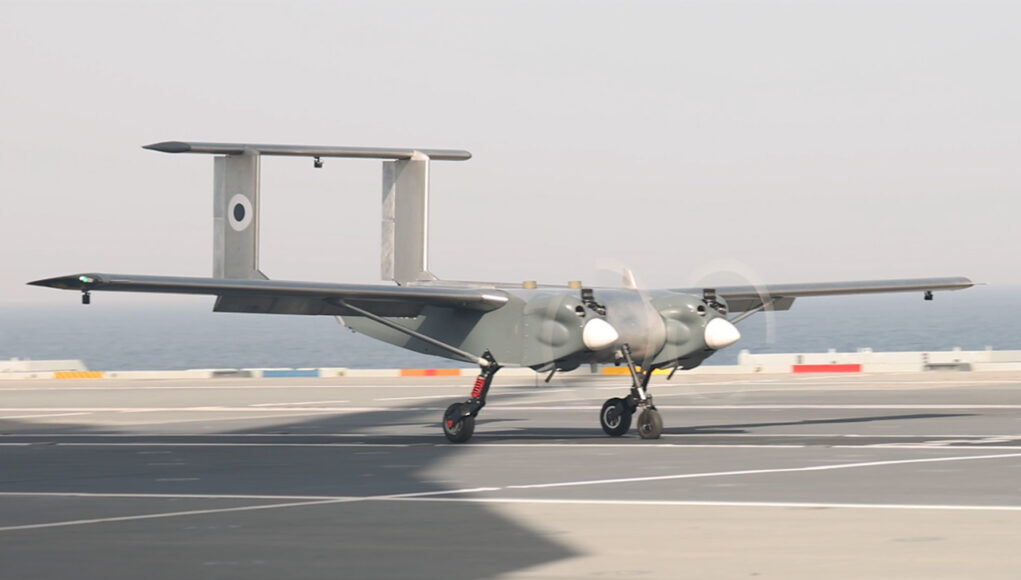

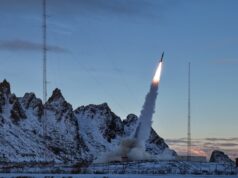


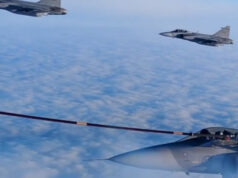
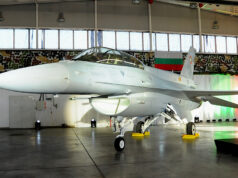
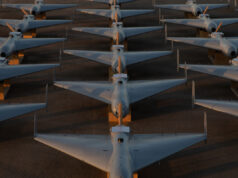
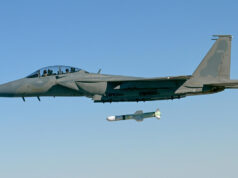
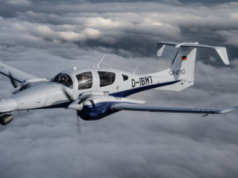
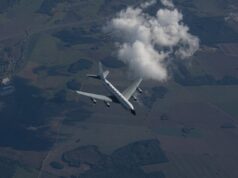

I think the characterisation of the Turkish program for the Anadolu, that they plan to use TB3s instead of F-35s, is misleading.
Of the three fixed-wing aircraft Turkey has announced as expected to fly from Anadolu: TB3, Kizilelma and the manned Hurjet, TB3 has the least capacity to take the role of the F-35. The latter two will be supersonic jet fighters in the 6 ton class, while the TB3s are slow, relatively lightweight at around 1.5 tons, and carry a reported payload of less than 300kg.
Even referring to Anadolu as a drone carrier in this context doesn’t paint the right picture. It will carry rotaries and fixed wing, manned and unmanned. It’s not so much that Turkey intend to use drones instead of manned aircraft, as the article states; like everyone else they will be fielding a mix.
Carriers have a lifespan of many decades, and their capabilities evolve along with the aircraft they carry. Anadolu will carry nothing to compare to the F-35, and that comparison is setting a very high bar. Over the coming decades, it will be interesting to follow Turkish attempts to clear it.
It’s a fascinating subject. I can’t wait to see what is developed next. The little countries are pushing ahead with all manner of small drones. The Turks look as if they are catching up with the Israelis.
I think they have surpassed Israel in drone tech and development! Turkey has sold more drones than China recently surpassing which is extraordinary. The variety they are offering like the TB2 TB3 and Akinci are a class of their own . They are making things like Kizilelma and Anka 3 which Israel fields not. They cleverly are creating things that are not on the menu of others that fill an important gap.
I think the Israeli drone development is akin to their armoured vehicle programmes. Tailored to their own unique requirements. It is also very unlikely that we know exactly what they have developed. The tunnel exploring drones, for example. I can’t imagine other militaries needing such things.
The TB3 the Turks plan to use for low intensity war through swarm and surveillance . The Kizilelma stealth drone by Baykar is the one to watch out for that will be supersonic with ASEA radar and with air to air missiles! They are more suited to the HMS Queen Elizabeth than any other carrier I can think of and could save cost and fill a gap.
Turkey has used the development of its 5th generation TFX fighter jet program now renamed as Kaan to advance it’s drone tech. The Kizilelma is designed to be a multirole fighter jet type of drone and the Anka 3 is a stealth bomber drone which looks more like Taranis by BAE.
Turkey has a huge diverse unmanned boats projects going on and plans to have a navy dominated by unmanned drone boats and aerial drones that are equipped with sonar and anti ship missiles working hand in hand with its frigates and air force.
Imagine the advantage they would have ? The Turkish manned navy would be beyond range of most navies anti ship missiles when they can just send unmanned boats with anti ship missiles that coordinate with aerial drones. I have seen videos of them in action already. They plan to add unmanned and manned mini submarines too .
The same doctrine the army and air force have recently tested too by having an unmanned air force working together with unmanned army using unmanned armoured fighting vehichle etc .
I feel like Europe in particular is lacking behind in not just development but fielding things like the Turks quickly . We saw in the Armenian and Azerbaijan war how Turkish support was decisive for Azerbaijan that used Turkish tech but to some extent Israeli tech too . We live in a world whee Turkey alone fields more drones than all of European NATO combined!
Their long range air defence system is almost ready , so soon they won’t need the Russian S400 which was an interim for them until their Super system was ready. Few days ago they increased their defence budget from 16 billion in 2023 to 40 billion which is a huge increase and can mean more R&D .
I definitely would not underestimate the Turks which now are present with bases in the Balkans , and Caucuses, Syria , Iraq Gulf region Qatar and North Africa and the Horn of Africa and expanding into west Africa francophone nations where they are replacing the French in trade and military relationship.
Their military export went from 3 billion to 8 billion this year and are projected to export 11 billion by next year making them a big export player. They have penetrated EU market too mostly Eastern Europe like Poland Romania and Balkans .
Britain and Turkey should be natural partners on a loyal wingman drone. They are strong where we are weak: mass production, will, continuity of development and a sense of urgency. Now you tell me they will be strong on finance too. We are strong where they are weak: engines, cooling, sensors and fusion. Although Britain already has air-to-air missiles, Turkey has a strong development program for that. Similarly both countries are working on autonomy software.
I think we could come to terms on exports; however Turkey may insist that it’s built in Turkey and maybe even that it owns all the IP, including engines, just like for Kaan, and unless they are willing to bend on that, we would be stymied on joint development.
If Rolls-Royce/TEAC can come to an agreement for the engines for Kaan, perhaps the rest will follow and Kizilelma will also fly from QE carriers.
Given Turkeys islamic nature, I don’t think “natural partners” is the correct term given our Judaeo-Christian nature. They may be NATO members but can they be trusted. The old saying: “Never trust a Turk.” Was coined for good reasons. My grandfather would turn in his grave at the very thought!
Buying a few Kizilema for use and “testing” on our carriers would be an option. Subsequently pulling them apart could prove an interesting exercise. I’m sure the knowledge gained if any, could be added to our own UCAV programmes. The unmanned Aeralis modular trainer team, for example. Something I hope comes to fruition sooner rather than later. A STOL version of the unmanned variant could be navalised (is that a word.) for use on our carriers.
Talking about variants. Has anyone been following the progress of the naval variant of the Eurofighter Typhoon, with it’s vectored thrust etc. It seems to have dropped off my radar for quite a while.
Or “Perfidious Albion” as the Italians used to repeat in your grandad’s time. Just as well no Italian’s grandad was deciding if they wanted to partner up with us on GCAP.
I don’t think naval Typhoon got anywhere. BAe proposed and the government ruled it out more than a decade back. Did anything happen since?
They were just repeating what the jealous French used to say. Not exactly note worthy. Those were the good old days when leaders of Great Britain placed the needs of the country and Empire first. As it should be.
Typhoon if it ever flies, could easily end up as another Tornado. If too many divergent requirements are demanded of it. Let’s hope not.
Exactly, they were jealous european nations. Incidentally, they still hold a grudge against us for it. Strangely in my experience, the frogs more than the box heads.
Thank the gods we left the EU behind us.
Agreed. Perfidious is the perfect term for the EU. Treacherous, secretive, manipulative, quango etc etc.
“Don’t worry, you can trust us.” They said. “It’s only a common market and no threat to your sovereignty. We do not want a single european superstate.”
People like myself call Ukraine and Russia oligarchies and the most corrupt nations in europe. It must be a close run thing when everything is taken into consideration. What say you?
You are bringing religion to some industry business trade which is insane! The UK itself is no longer majority Christian in the last census, so I’m not sure where this crusades mentality comes from 😄 It’s nothing personal just business and shared interest.
James, with all due respect my friend. I’m not bringing religion into it. That happened a long time ago and it’s influence is now deeply ingrained in every aspect of our British culture and very nature.
Our monarch is supreme head/governor of our church and defender of the protestant faith. We have bishops in the H of L. Parish councils influence our daily lives at a local level. The majority of us still have Saturday and Sundays off etc. It is our Judeo-Christian heritage and it’s continuing influence on society, reflected in our traditions, our very nature and every aspect of the state laws etc. – Note, I’m not arguing that it is either a good or bad thing. Just acknowledging it’s an inescapable fact. It is not hair splitting or semantics. Natural in this instance means something.
Hence, if it is our “nature,” a traditionally islamic people such as the Turks are not our “natural” allies. Natural allies have many, many things in common. The more we have in common, the more natural allies we become. It’s human “nature.” Do you follow.
The Turks and we great British are chalk and cheese!
Our natural allies will always be the Anglosphere. USA, Australia, Canada and New Zealand. Even if the Kiwis have lost their way a little in recent times. (My apologies to the sites Kiwi followers. I still love New Zealanders like brothers. Aye, I do. April 25th is remembered in my family like November 11th.) All others are allies of convenience, with whom we share temporary interests and allegiances. Russia, France and Germany being prime examples.
I openly acknowledge the nature of our Great Britain is changing. Which I think was your point. More accurately I believe it is in the process of being deliberately changed. But it’s not a done deal yet. There is strong resistance by traditionalists and nationalists.
Thanks James, for giving me the opportunity to remind everyone what being natural allies really means, and why it is an important distinction. I wish you well.
Yes both are on the edges of Europe. Turkey may have good relationship with Russia but it wants not the black sea to be become a Russian lake! Meanwhile it has expanded into Caucuses right at Russia backyard which the US even has not managed to, which in any conflict could be another NATO front .
The Turks are working on their own fighter jet engine.. it would take them time but the UK could help them speed up that process. Just like we saw with the recent drone done in partnership with the UK both countries can reach far fast without being dragged slow by the likes of France with projects .
With Turkish partnership UK carrier strike groups could field sophisticated lethal drones fast at fraction of the cost. They could provide autonomous boats armed with anti ship missiles for the carriers and sonars , reducing the risks the carriers face while extending their lethal range .
This could bolster UK foreign bases with more lethal drones and autonomous boats and surveillance capability at an affordable cost and expand British cloud overseas .
I see a great opportunity with their mini submarines project too which make the black sea a nightmare for the Russian navy and keep the Russian navy contained while bigger assets can focus on other regions.
Let’s not forget Kaan Turkey 5th generation air superiority fighter jet is the only 5th generation jet being developed in Europe and can fill many gaps in terms of cost if becomes cheaper than the F35. I have seen in and it’s design looks superior anything Russia has shown like the SU57. For Europe to have a second option is essential.
Siper Turkey long range air defence system is something else worth looking at in collaboration as it will be the Only air defence system that learned not from just NATO but the best of the Russian air defence system the S400.
The UK lacks long range air defence system and generally lacks many . In terms of the army the Turkish army by far is the best armed army in Europe with the choice of second to none armoured vehicles and tech and missiles they boast. I think that’s an area where the UK army can make very quick gains in terms of equipment the army needs at affordable cost fast if we ever intend to rebuild the army and make it lethal once again using 21st century tech. This area is a none sensitive area the UK can benefit.
Look at Estonia example the just paid the Turks 200 million to get 230 4 wheeled and 6 wheeled vehicles because they can’t wait to develop them due to the Russia threat. 9 bidders were part of ir including France Germany the US and other, but they picked the Turks why? They offer quality at fraction of the cost and very speedy delivery! By 2025 all vehicles will be delivered.
So I agree there is lots of potential in many fields if we get serious about delivering things on budget which BAE won’t ever do.
I didn’t realise that the Turkish navy was so heavily geared up for amphibious warfare. Now the old USSR has gone, POOF! Who are they thinking of invading, Israel?
Greece.
Yes, of course. Silly me.
The Turks have invaded Greece with immigrants and never fired a shot in anger. Mostly military aged muslim men.
Unless you have ambition to be a true blue water navy, I don’t see why a country would need to spend large sums on building drone carriers. It would be far cheaper to concentrate on developing long range UCAVs that can operate from land. All the drone carrier does is extend range, something that can be achieved by the design of the UCAV itself.
Deploying rotary UAVs at sea, especially in the ASW role, makes more sense because the UAV will depend on ship borne sensors.
Well, the Turkish navy seems to be heavy on amphibious assault vessels. Perhaps they intend to have the various UCAV/UAVs directly slaved to the amphibs, to shorten command and control lines. It makes me wonder if there is the same disconnect or bitter rivalry between the Turkish Navy, Army and Air Force As there is with their fellow muslim arab and persian neighbours.
The Turkish Air Force fields enough drones and soon will get Anka 3 a Taranis like stealth bomber and Kizilelma a supersonic stealth drone fighter and bomber drone with different variants . They also have Akinci in service.
Now they are focusing on the naval aspects with TB3 and have other naval Anka drones that hunt subs and have anti ship missiles. Turkey went from importing 80 percent of its defence needs to producing 80 percent of it with a 100 percent goal to be fully self reliant under Erdogan leadership which is impressive as the time span has been short.
Turkey no longer sees Greece as major threat because let’s be honest Greece is no longer a match for them to consider with the size of the Turkish armed forces and quality tech edge . Its more about natural resources in the sea which they should negotiate over which I think will happen.
Those Turks sure are bolstering their military with new technology. I’ve spent a while catching up on their recent acquisitions and advances. Always being suspicious of muslim Turkey, I’m not sure of Erdogan’s intentions. Who do they intend to invade or with whom do they intend to use amphibious vessels to dispute ocean bed resources?
They border the Black Sea and the Med.so the choices are varied. They should have been booted off Cyprus a long time ago. In my opinion.
North Africa comes to mind. If Turkey wishes to have greater influence in the area, perhaps including military support to their chosen “governments”, then they need a way to get there to offer such support. That includes HADR support as well of course. Turkey has an awful lot of armour but next to no oil. North Africa has next to no armour, but plenty of oil.
I can’t argue with that. Wars and conquests for resources are not new. However, as the population rises and natural resources run out. They will inevitably become more prevalent.